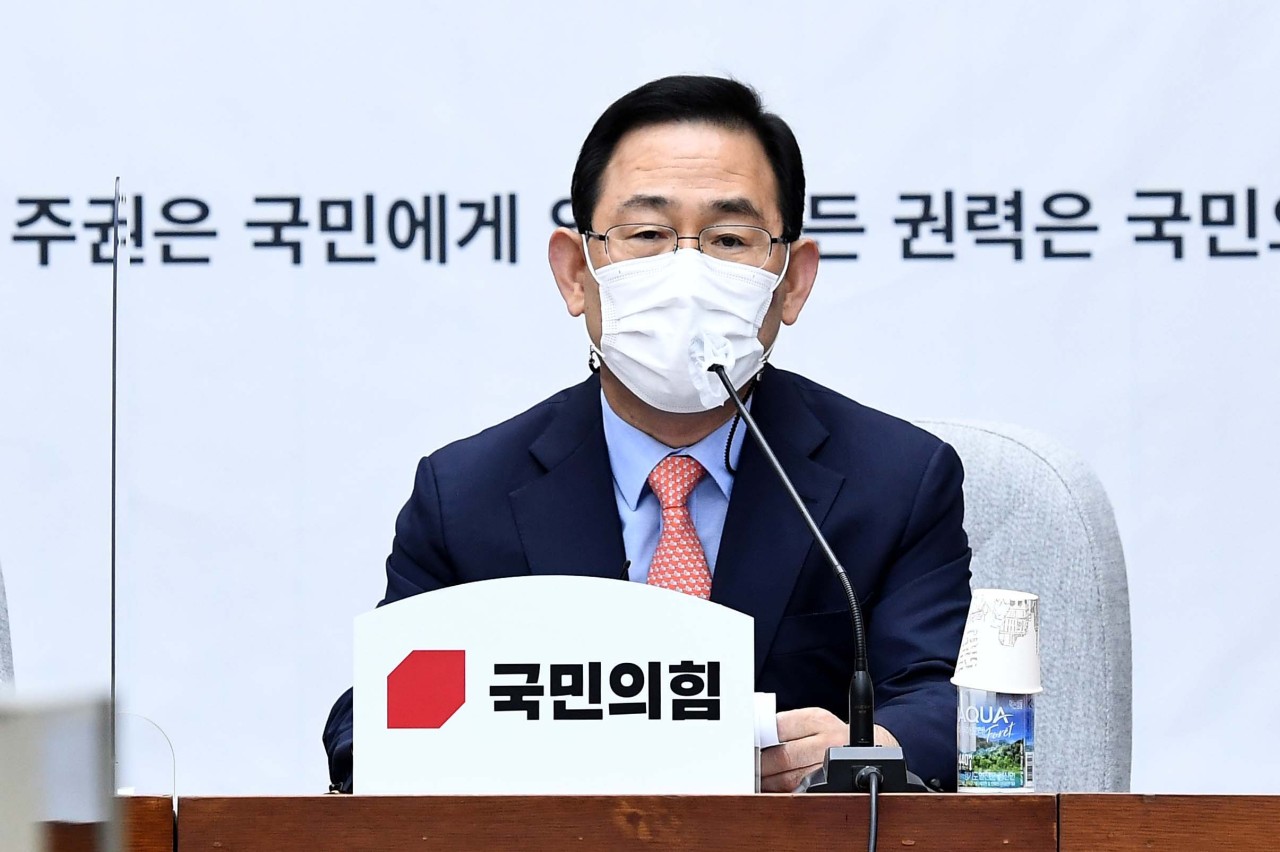Lawmaker’s intelligence disclosure causes concerns about national security
By Park Han-naPublished : Oct. 6, 2020 - 16:39

A lawmaker has given rise to debate by revealing classified information to the public regarding the recent killing of a South Korean civil servant by North Korean forces. The discussion centers on the proper balance between national security and the people’s right to know.
The Ministry of Defense is considering legal action against lawmakers who “indiscreetly” disclosed details of the South Korean military’s intelligence on the death of the South Korean fisheries official on Sept. 22. The official, surnamed Lee, was shot dead by North Korean troops after drifting into the North’s waters, in what the military concluded was an attempt at defection via sea. The military initially said his dead body was likely burned by the North, which Pyongyang denied. The North did admit to the killing.
After the high-profile incident, government authorities including the Defense Ministry shared sensitive information about the issue with lawmakers on the standing committees in charge of intelligence, defense, foreign affairs and North Korea. It was supposed to be kept confidential.
This immediately turned into a major political issue, with the opposition parties mounting attacks on the Moon Jae-in administration for its “failure” to protect the country’s citizens.
Rep. Joo Ho-young, floor leader of the main opposition People Power Party, disclosed part of the classified information to the media in criticizing the government.
During a press conference Sunday, Joo said the military eavesdropped on North Korea’s communications pertaining to a shoot-to-kill order for Lee using the code word “762,” which refers to a 7.62-millimeter caliber rifle, according to the lawmaker.
Joo cited “special military intelligence” gathered by the Defense Ministry and the National Intelligence Agency as the source of the information.
On Sept. 29, the floor leader said the Defense Ministry learned through special military intelligence that the North had directed its officials to douse Lee’s body with oil and set it on fire.
Special intelligence is Level 3 classified information in a three-tier system, meaning it requires the highest degree of secrecy. Exposure of such information could jeopardize a critical source of intelligence, and this could take months to rectify.
“We are conducting legal review at various levels to see if there is any violation of the Military Confidentiality Protection Act,” a ministry official said.
In response, Joo asserted that the Defense Ministry and Cheong Wa Dae are trying to frame him to shift their responsibilities on him after they leaked the information.
“In the case of ‘762,’ there were news reports before I mentioned it. Rep. Han Ki-ho (of the PPP) wrote a post about it on Facebook. Cheong Wa Dae even had a briefing session on the matter with reporters,” he said on Tuesday.
Seoul’s efforts to find the body of the victim have continued for over two weeks without significant progress despite the mobilization of dozens of naval vessels, small ships and aircraft. Pyongyang has been unresponsive to Seoul’s calls for a joint investigation.
Rep. Youn Kun-young of the ruling Democratic Party said the information disclosed by Joo shouldn’t be verified for the national interest and security.
“If the information is confirmed to be credible, the military’s hard-won intelligence assets will be lost. On the contrary, if his claim was confirmed to have no credibility, the opposition party will demand more intelligence disclosure as a mean of political offensives,” Youn said Tuesday during a KBS radio interview.
The incident was the second in which North Korean military officials shot and killed a South Korean civilian. In July 2008, a South Korean tourist was killed at Kumgangsan.
Amid the public attention surrounding the incident, the Joint Chiefs of Staff of the Republic of Korea said that on Sept. 24 it learned through espionage activities that Lee had notified the North of his intention to defect to the regime. It didn’t disclose the source. The absence of confirmatory evidence to back up the claim invited speculation that the military may have been making a false accusation against Lee to excuse its delayed response.
“Saying that Lee had left his shoes behind on the boat and wore a life jacket cannot prove his voluntary border crossing attempt. The Defense Ministry is keeping mum on what made it think that Lee wanted to defect,” said Rep. Lee Man-hee of the People Power Party.
The ruling party is clinging to its position that no further details should be disclosed, to protect the intelligence asset who helped South Korea to understand the circumstances of the death.
By Park Han-na (hnpark@heraldcorp.com)











![[Today’s K-pop] BTS pop-up event to come to Seoul](http://res.heraldm.com/phpwas/restmb_idxmake.php?idx=644&simg=/content/image/2024/04/17/20240417050734_0.jpg&u=)






![[KH Explains] Hyundai's full hybrid edge to pay off amid slow transition to pure EVs](http://res.heraldm.com/phpwas/restmb_idxmake.php?idx=652&simg=/content/image/2024/04/18/20240418050645_0.jpg&u=20240419100350)

